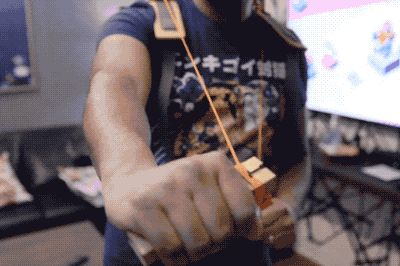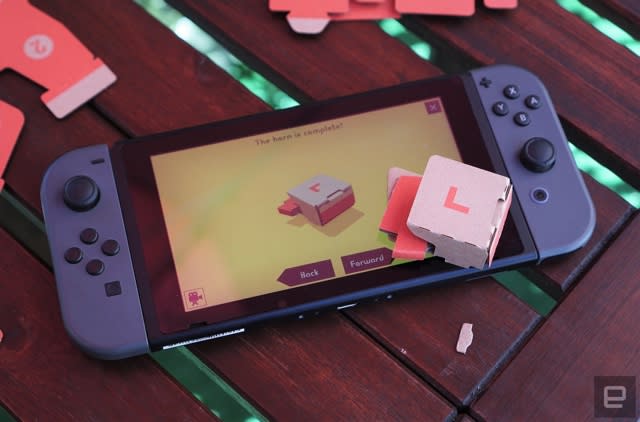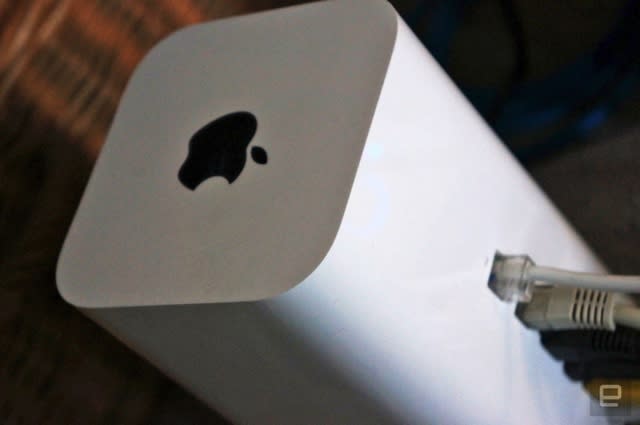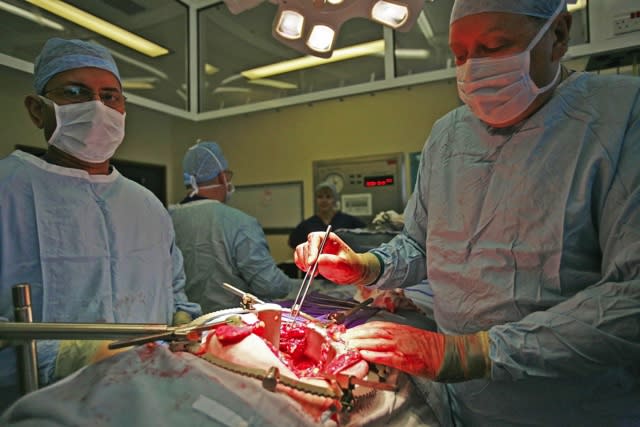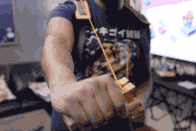The Morning After: Nintendo's DIY cardboard kits reviewed
Friday fun.
Happy Friday morning! We bust out the cardboard and make a robot suit in our Nintendo Labo review, Apple ends its AirPort WiFi family and we figure out what's going on with HD vinyl. There's other things too, of course!
Nintendo Labo review: a labor of love
Nintendo's Labo is ingenious. It's something few other companies could have produced and turns the Switch into so much more than a game console: With Labo, it's an engine powering a whole new world of DIY creations. However, building Labo kits can be a pretty huge time sink.
Apple discontinues its AirPort WiFi routers
The rumors of Apple exiting the WiFi router market were true: The company is officially discontinuing its AirPort and Time Capsule base stations. Apple told us the company would continue to provide hardware and software support (such as patching bugs and vulnerabilities), but the devices themselves will only be available "while supplies last."
Someday, every piece of a person will be replaceable
Medical science has made tremendous advances in reproductive-organ transplant techniques. In the span of just four years, we've seen the first successful penile transplant, the first child born from a transplanted uterus, and as of Monday, the world's first full male genital transplant surgery. What's even more wild is this isn't just a state-of-the-art medical procedure, it's par for the course in terms of transplant technology.
Amazon's Alexa can't remember stuff. That will soon change, however. Amazon's Ruhi Sarikaya has detailed a string of upgrades to Alexa that promises more natural conversations, particularly about familiar subjects. Most notably, Alexa devices in the US will soon have a memory: You can tell the voice assistant to remember an important fact (say, a friend's birthday) and bring that up later.
Investigators used online DNA databases to hunt Golden State Killer
Yesterday several police departments in California announced the arrest of the Golden State Killer, who killed a dozen people between 1978 and 1986 and has been accused of over 50 rapes. At the time, investigators said DNA played a role in identifying former Auburn, CA, police officer Joseph James DeAngelo, and today went a step further with the explanation.
Investigators took DNA samples from the old crime scenes and plugged them into online databases, looking for familiar matches that would help narrow down the suspect. The Olympian reports that by combing through family trees of partial matches, they focused on DeAngelo, who was the right age and had lived in some of the areas. The method used is likely to reignite debate over the privacy implications of DNA-based services.
But wait, there's more...
Amazon is doing what it does best: making money hand over fist
House Judiciary Committee hearing on social media called a 'hoax'
The Morning After is a new daily newsletter from Engadget designed to help you fight off FOMO. Who knows what you'll miss if you don't Subscribe.
Craving even more? Like us on Facebook or Follow us on Twitter.
Have a suggestion on how we can improve The Morning After? Send us a note.


